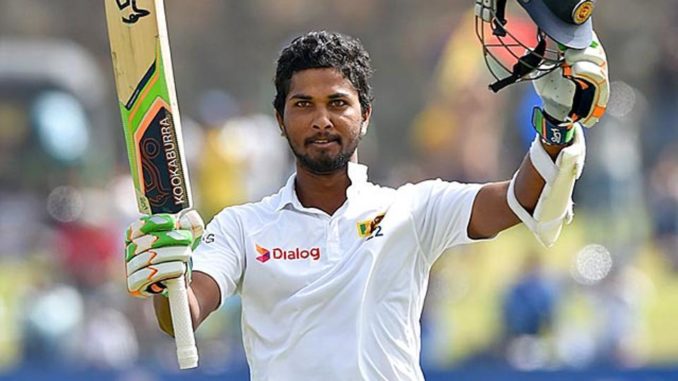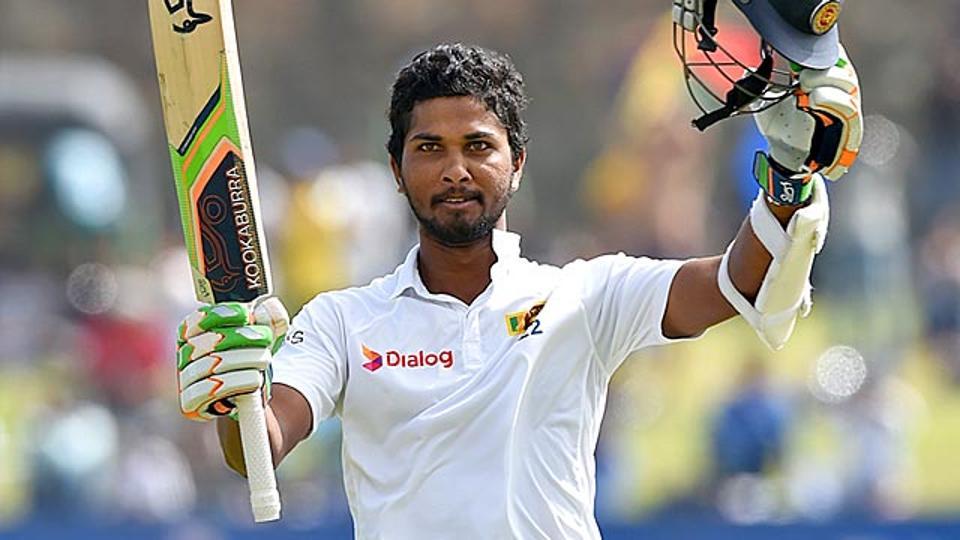

Sri Lanka captain Dinesh Chandimal has appealed against the match referee’s finding from the second Test in St Lucia, which resulted in him being suspended for one Test on a ball-tampering charge.
Chandimal was charged after umpires reviewed footage of him that appeared to show he took lollies from his left pocket, put them in his mouth, then used saliva to shine the ball.
He was subsequently banned for one Test match and fined 100 per cent of his match fee, however the ICC today confirmed he has appealed, with a date for that hearing still to be set.
Chandimal, coach Chandika Hathurusinghe and manager Asanka Gurusinha, were also charged with a breach of Article 2.3.1, a Level 3 offence, which relates to “conduct that is contrary to the spirit of the game” following the Sri Lanka team’s refusal to take the field in the opening session last Saturday.
The Sri Lanka skipper now risks receiving between four and eight suspension points, which could potentially add a minimum of two further Tests to his current one-Test suspension.
A full eight suspension points would result in his suspension for not only the upcoming two-Test series against South Africa, but four ODIs against the same nation as well.
Following Tuesday’s charge, Chandimal became the first person to be suspended for a Test ball-tampering charge. Australia opener Cameron Bancroft was fined 75 per cent of his match fee for the Cape Town incident while captain Steve Smith was banned for a Test for bringing the game into disrepute.
David Warner was not sanctioned by the ICC but all three Australians copped lengthy bans from Cricket Australia for their roles in that incident.
Faf du Plessis was fined 100 per cent of his match fee but escaped suspension for having a mint in his mouth while shining the ball during the 2016 Hobart Test against Australia.
Chandimal’s one-match ban and 100 per cent match fee fine was the maximum possible punishment available to match referee Javagal Srinath under the current ICC regulations. There are plans to strengthen the sanctions available for ball tampering under the ICC’s Code of Conduct later this year.
“After reviewing the footage of the incident, it is clear that Dinesh applied an artificial substance to the ball, namely saliva containing the residue of something he had in his mouth, an action which is prohibited under the ICC Code of Conduct,” Srinath said in a statement.
“The footage shows that upon receiving the ball, Dinesh took something from his pocket and put it into his mouth.
“After sucking or chewing whatever he put in his mouth for a few seconds, Dinesh then proceeded to spit on his finger and polish the ball with his saliva which would have contained the residue of the artificial substance that he had in his mouth, on two separate occasions.

Be the first to comment